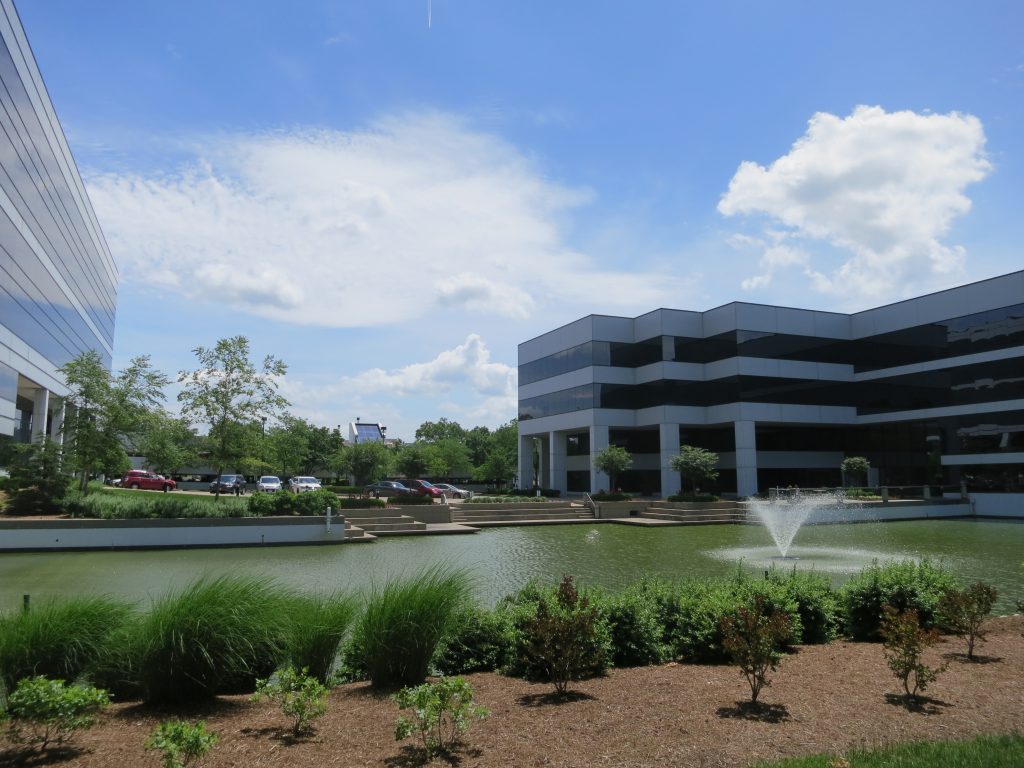Reinventing the Suburban Office Park
All the city news you can use.

Office Park. Photo by Paul Sableman. (CC BY 2.0)
Every day at The Overhead Wire we sort through over 1,500 news items about cities and share the best ones with our email list. At the end of the week, we take some of the most popular stories and share them with Urban Milwaukee readers. They are national (or international) links, sometimes entertaining and sometimes absurd, but hopefully useful.
Building cities from mud: Looking for more sustainable ways to build cities, some architects are returning to a centuries old building material: mud. Mud buildings keep heat in the winter and cool in the summer, and are imminently recyclable. Could mud be the future of sustainable building material of the future? (Isabelle Gerretsen | BBC Future)
The future of the suburban office park: At one time suburban office parks were seen as the future. Corporate headquarters with leafy trees and ample parking these “parks” were seen as a way to improve worker productivity. But now being in the middle of nowhere is a liability, and the land on which these functionally obsolete offices sit are in need of reinvention. (Emily Badger | New York Times)
Vienna took the stigma away from social housing: More than 60 percent of Vienna’s 1.8 million residents live in subsidized housing and half of the city’s housing units are city-owned or in apartment co-ops. The availability of housing is part of the belief that housing is a basic human right. In keeping more housing units under city control, there is a greater ability to regulate rents, something other cities have lost as they sold or privatized their housing. (Aitor Hernández-Morales | Politico EU)
The true cost of urban technology promises: An excerpt from Paris Marx’s new book Road to Nowhere discusses what he believes is the true future of technology in cities looks like; more segregated based on income, more hostile to pedestrians, and more controlling of our personal lives. (Paris Marx | Wired Magazine)
Quote of the Week
The Transport Ministry is providing €2.5 billion over three months to compensate for the loss of revenue caused by the artificially low ticket price — and yet no money was made available for extra personnel, buses or trains.
Lars Wagner of Germany’s Association of German Transport Companies (VDV) in Deutsche Welle on the short term thinking related to the very successful 9 euro summer pass in Germany.
This week on the podcast, This week we’re joined by University of Pennsylvania’s Fritz Steiner and Bob Yaro and University of Texas’ Ming Zhang to talk about their new book, Megaregions and America’s Future.
Want more links to read? Visit The Overhead Wire and signup.
Urban Reads
-
Congestion Pricing Cuts Air Pollution in New York City
 Dec 14th, 2025 by Jeff Wood
Dec 14th, 2025 by Jeff Wood
-
We Think We Love to Drive. But Do We Really?
 Dec 7th, 2025 by Jeff Wood
Dec 7th, 2025 by Jeff Wood
-
Can Scott Wiener Tackle America’s Housing Crisis?
 Nov 23rd, 2025 by Jeff Wood
Nov 23rd, 2025 by Jeff Wood





















